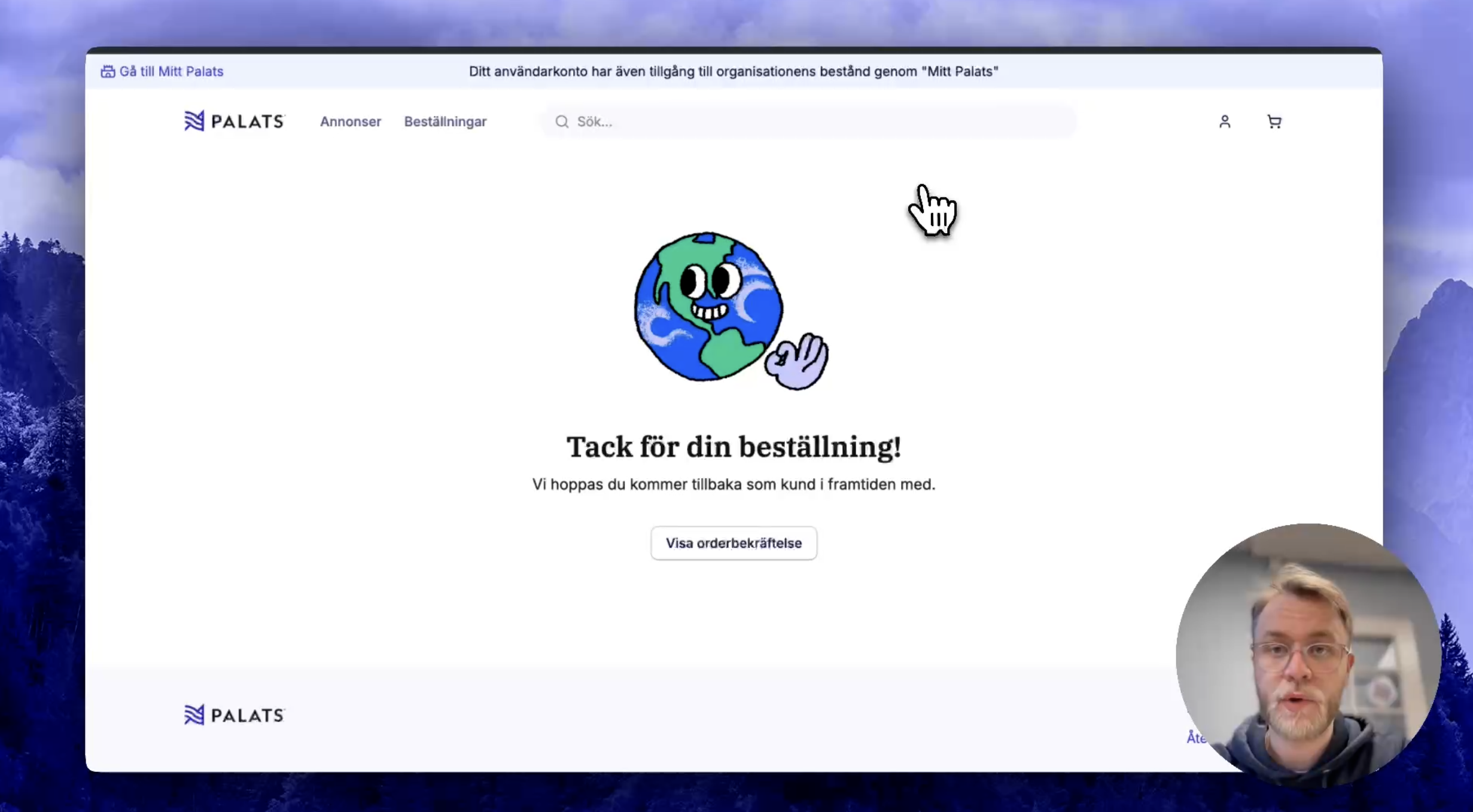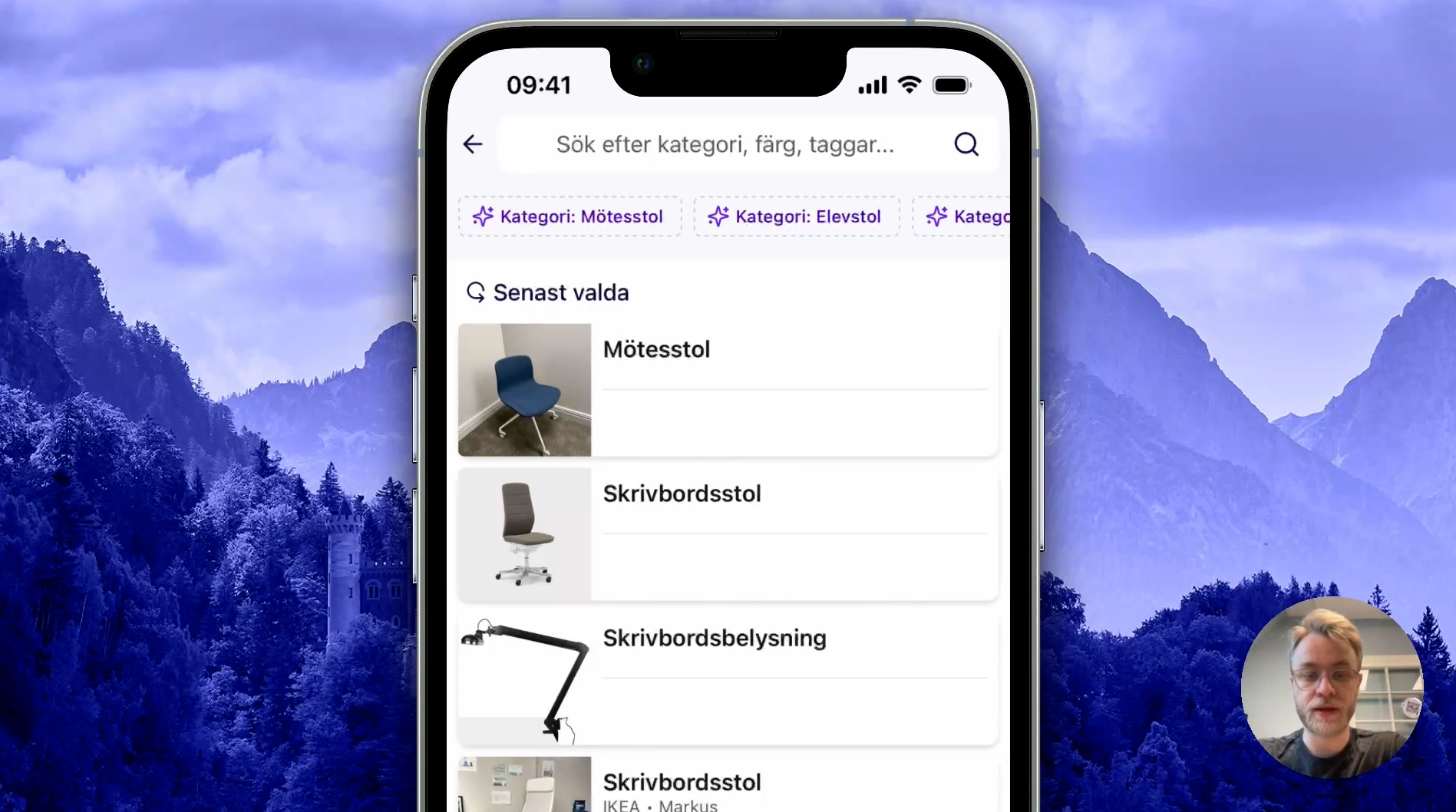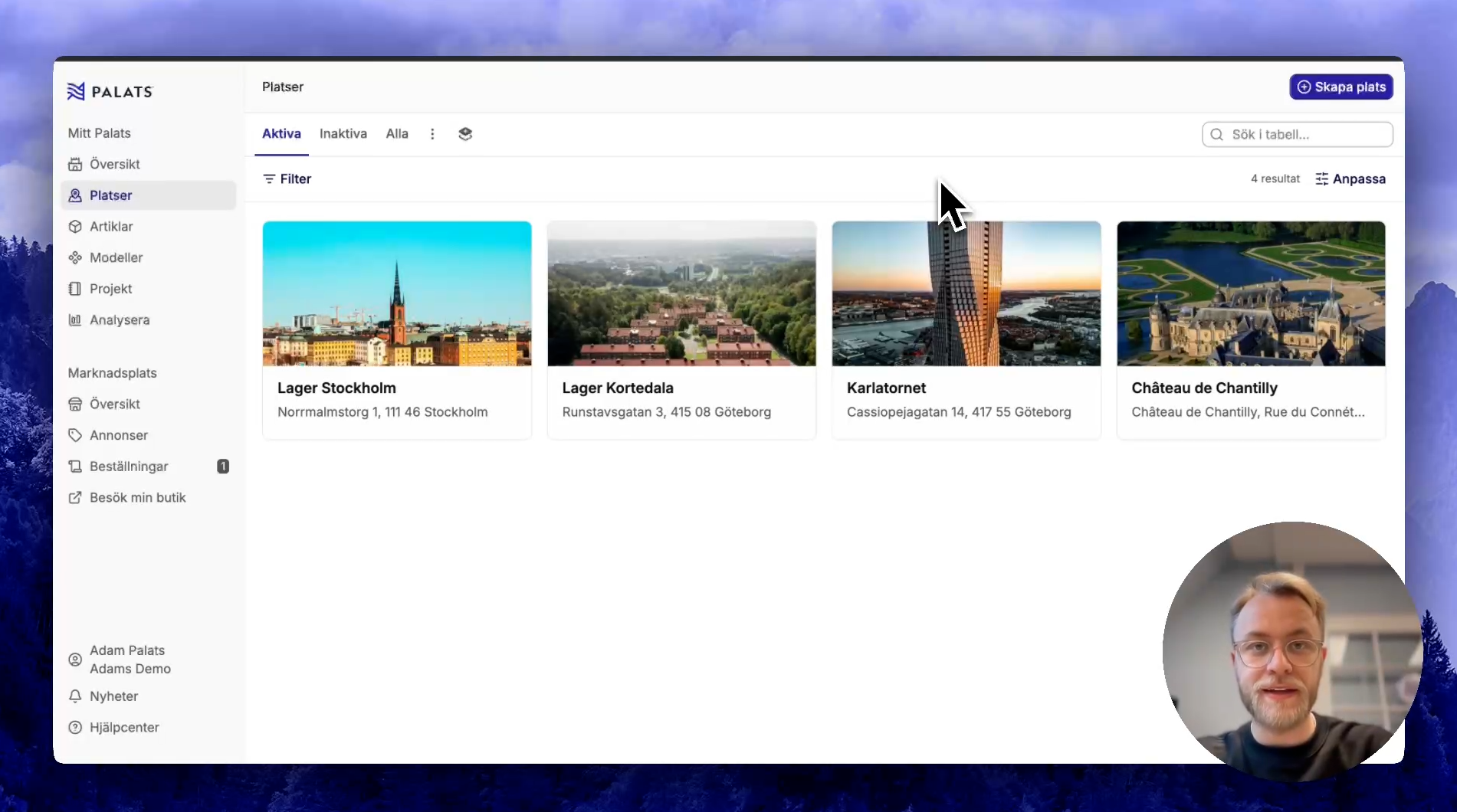Product update September
In September, we rolled out major changes to the marketplace that bring better order confirmations, more customizable messages, and order history. In addition, there’s more information when scanning articles, and more data on marketplace usage.
New checkout and order confirmation
Over the summer, we rebuilt the marketplace from the ground up to make it more flexible, so that the listings a visitor sees can be tailored depending on their role. Listings can now be exposed to different target groups based on needs. For example, you may want to allow a certain department to book articles internally first, and then show the listings to the rest of the organization if they are not booked after a month. This is now possible in Palats!
With this change, where we introduce the concept of target groups, we also took the opportunity to redesign and refine the checkout and order confirmations. It is now much clearer which delivery methods are offered, where to go, and whom to contact. For administrators, there are now even more options to customize the communication that takes place in various messages and texts on the marketplace.
The new marketplace is gradually being rolled out to customers. Our goal is that all customers will have access to the new marketplace during October.
History and comments on orders
A recurring problem when managing large volumes of orders is that it can be difficult to keep track of who did what and when. Now, each order has a timeline that shows what has happened. It is also possible to see which email notifications the system has sent and to whom—for example, reminders or confirmations.
On the timeline, administrators can also add comments. This can be useful for keeping internal notes, or for communicating that a specific action is required on an order. The comments are only visible to other administrators.
More detailed article events
In a report, you can now also see events when an article has been listed or ordered.
This opens up the possibility to perform more advanced analyses, for example, to determine which categories are booked fastest or how long the processing time for orders is.
Tools to carry out this type of analysis directly in Palats are just around the corner, but in the meantime, you can extract the data and export it to Excel to compile your analysis.
More information when scanning an article
When you scan a QR code with the Palats app, you can now see directly on the scanner screen which order the article belongs to if you are working with a marketplace. If you scan an article that is part of a relocation project, you instead see which new location the article should go to.
Curious about starting your own marketplace to increase reuse? Contact us for a demo!






